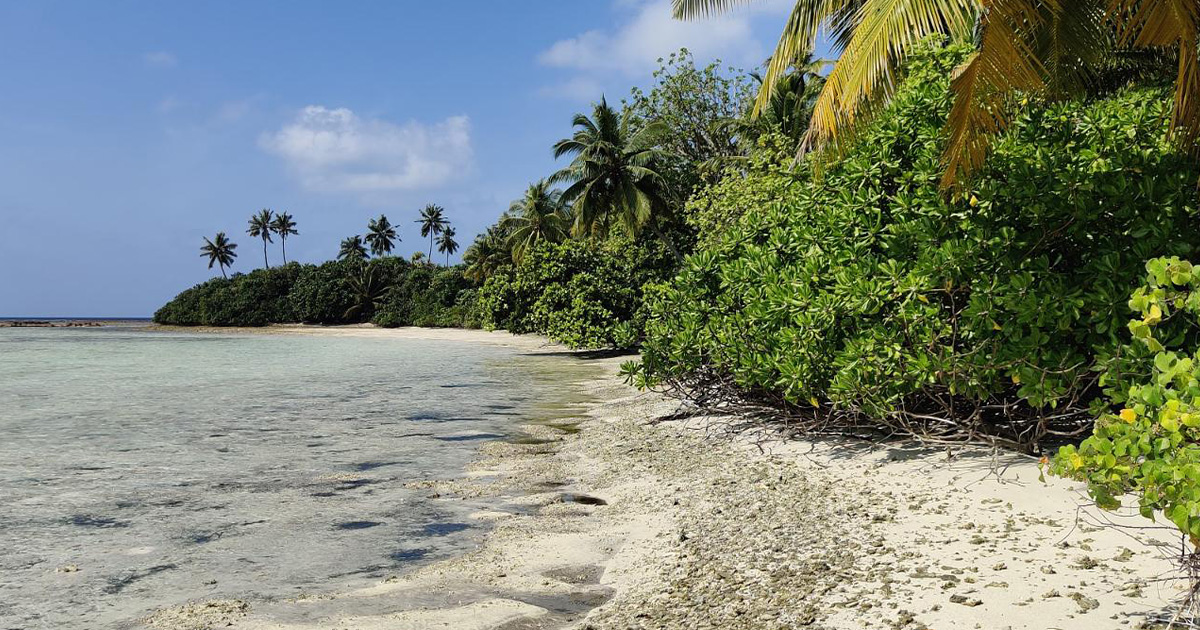A major international research project is to explore the potential for low-lying coral atoll islands to survive the predicted rise in sea level.
The islands, commonly found in the Indian and Pacific Oceans, are widely acknowledged to be among the world’s most vulnerable environments to climate change.
vMost of them are presently predicted to be uninhabitable by the mid-21st century, but those forecasts are based on relatively simple hydrodynamic models.
A £2.8 million project—Natural adaptation of atoll islands to sea-level rise offering opportunities for ongoing human occupation (ARISE)—is being funded through UK Research and Innovation’s Horizon Europe Guarantee program.
It aims to improve our understanding of the processes that will threaten and preserve these island nations. It also aims to aid in the formulation, development, and implementation of climate change adaptation strategies.
The project is being led by the Coastal Processes Research Group (CPRG) at the University of Plymouth, which has previously led studies suggesting that island ‘drowning’ may not be inevitable in the face of sea-level rise.
Gerd Masselink, Professor of Coastal Geomorphology at University of Plymouth, said:
“The rise in sea levels as a result of climate change is going to place many coastal communities under threat. Within that, it has largely been assumed that these coral atoll islands could just disappear. Our previous research has suggested that is not a foregone conclusion, and this project will establish the processes at play and as well as supporting the communities that call these islands home by identifying and evaluating adaptation strategies.”
The five-year project will include a series of extensive field tests in both the Maldives and the Pacific, beginning in January 2024 and continuing through 2027, using their state-of-the art coastal process research instrumentation and autonomous survey equipment.
There will also be laboratory experiments in the spring and summer of 2024 in the largest wave flume in the world—the Delta Flume at Deltares in the Netherlands.
Combined, these tests will enable researchers to explore the impact of over-washing on the islands’ beaches and any natural processes that are adding to their resilience.
The research teams will also be on standby to travel to the atoll island systems and analyze their response to cyclones and other extreme wave events.
The datasets generated through these tests will be used to develop, calibrate, and validate a series of numerical models, which will then be used to evaluate how they might respond—both in the short and long-term—to sea level rise.
Much of the Coastal Processes Research Group (CPRG)’s previous work has been conducted with communities in the Maldives, and this project will extend this collaboration to the Pacific.
They will be working closely together with the Maldives Government, Secretariat of the Pacific Community and the Maldives National University.
The researchers also aim to work with communities and government bodies in the island nations, enabling them to implement adaptation strategies that maximize opportunities for continued habitation.
“Atoll islands have been created over hundreds to thousands of years by ocean waves, and their future is intrinsically connected to it. The ecology of the reefs they sit on is also under threat, but their survival is critically important to the island’s survival,” said Gerd Masselink.
“The big question is whether all of that can keep up with sea level rise and answering that is crucial for both the islands and the people who live on them.”



